| General Chairs | Charalampos Kontoes, NOA/IAASARS Charalampos (Haris) KONTOES holds the position of Research Director at the IAASARS/NOA and leads the Operational Unit BEYOND Center (www.beyond-eocenter.eu) for Earth Observation Research and Satellite Remote Sensing. He received his PhD in Earth Observation holding a grant from EC (JRC/ISPRA). He leads a team of researchers with active participation in Space related projects funded by ESA, EC, and International Institutions (WB, EIB) focusing on DRR, environment and sustainable development, agriculture, energy, health and big data analytics. He acts as National Delegate contributing to Space Policy and Program Committees of ESA, EC, COPERNICUS, SST/SSA. He is member of the Steering Committee of GNSL GEO Initiative and the National Committee of IUGG, and is actively involved in the GEO DRR and Capacity Building WGs. He is responsible for the Sentinel Greek Hubs (Node 3 of Copernicus Data Access Service), the Hellenic Mirror Site, and the NOA’s GS, distributing Copernicus data and Copernicus contributing missions’ data worldwide. He is author of more than 200 publications (h-index 32). He speaks English, French and Italian. | 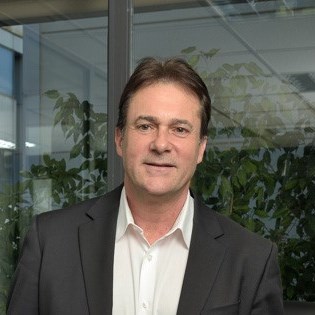 |
|---|---|---|
| Vito Pascazio, Università degli Studi di Napoli “Parthenope” Vito Pascazio graduated (cum laude) in 1986 at the University of Bari, Italy, in Electronic Engineering, and he received in 1990 the Ph.D. degree in Electronic Engineering and Computer Science from Department of Electronic Engineering of the University of Napoli "Federico II", Italy. In 1990 he was first at the Research Institute on Electromagnetics and Electronic Devices (IRECE) of the Italian National Council of Research (CNR), Napoli, Italy, and then he joined the Università di Napoli "Parthenope", Italy, where he is presently Full Professor of Telecommunications. Vito Pascazio was also the Director of the National Laboratory of Multimedia Communication of National Consortium Inter-Universitary of Telecommunication (CNIT) from 2011 to 2016, and Chair and Dean of the Department of Engineering from 2013 to 2019. He is presently Vice-Rector for internationalisation at Università di Napoli "Parthenope". Vito Pascazio was Visiting Scientist at the Ecole Superieure d’Electricité (SUPELEC), France, with a Marie Curie European Individual Grant, during 1994-1995. Vito Pascazio has been PI or co-PI of several Research Projects funded by Italian and International Institutions, Agencies and Companies. His main research interests are in the field of Synthetic Aperture Radar (SAR) Image Processing, SAR Interferometry, SAR Tomography, GB-SAR, Microwave Tomographic Image Reconstruction, Ground Penetrating Radars, Through the Wall Imaging, and, more recently, on Application of Deep Learning Techniques to Radar and Remote Sensing Imaging. He served as General Co-Chair IGARSS 2015 conference in Milan (Italy), and he is the General co-Chair of next IGARSS 2024 in Athens (Greece). | 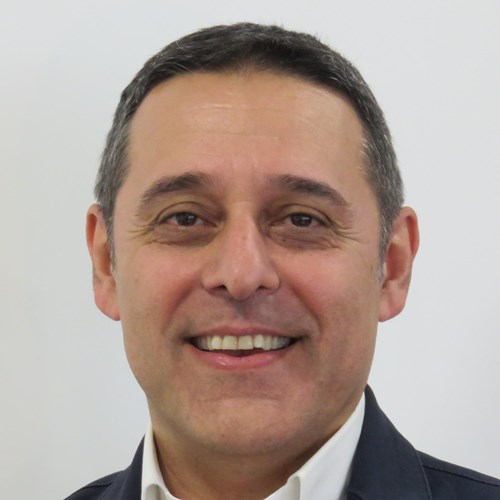 |
|
| General Chairs Executive Office | Aspasia Trevlaki, National Observatory of Athens Aspasia Trevlaki is an experienced Communications Specialist with a demonstrated history of work in big scale organizations and Research Centres in Greece. She graduated from School of Economics & Political Sciences of the National and Kapodistrian University of Athens, from the Department of Communication & Media Studies. She holds a Master of Arts in Political Communication and New Technologies from the National and Kapodistrian University of Athens. With an extensive experience in press office, media relations and political campaigning, she is excelled in developing and implementing communication strategies, in content writing and storytelling for digital, traditional and social media channels. Over the last years, she has dedicated her efforts to the science communication sector, working for the Operational Unit BEYOND Center for Earth Observation Research and Satellite Remote Sensing at the National Observatory of Athens. Her recent research focuses on political lobbying and anti-lobbying practices. Previously, she explored TV agenda setting and framing theory, as well as the transformative impact of the Internet on social, political, and economic dynamics. | 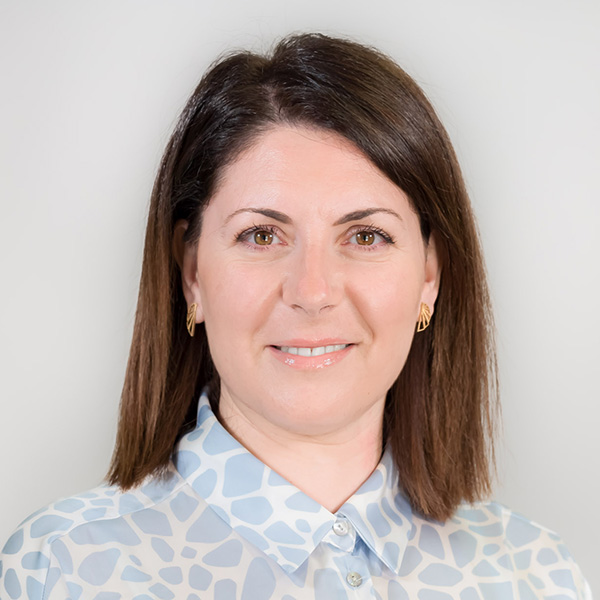 |
| George Choumos, National Observatory of Athens George Choumos is a Research Associate and Technical Project Manager at the Operational Unit “BEYOND”, of the Institute for Astronomy & Astrophysics, Space Applications and Remote Sensing, of the National Observatory of Athens. He holds a BSc in Computer Science from the National Kapodistrian University of Athens (NKUA), an MSc in Data Science from Athens University of Economics and Business (AUEB), and he is completing a second MSc in Space Technologies, Applications, and Services from NKUA. He is currently a PhD candidate in the Aerospace Science and Technology department of NKUA, and particularly in the subject of Artificial Intelligence for Space Security. Mr. Choumos is an experienced software engineer, having worked as a member of multicultural teams since 2013. He has been involved in projects related to Software Development, DevOps, Code Management, and Release Management, and he was the team leader of relevant groups. Since 2021, he has shifted his focus to the research domain and as part of the National Observatory of Athens, he has been involved in EU research projects, relevant to Earth Observation and Space Situational Awareness / Space Surveillance and Tracking. | 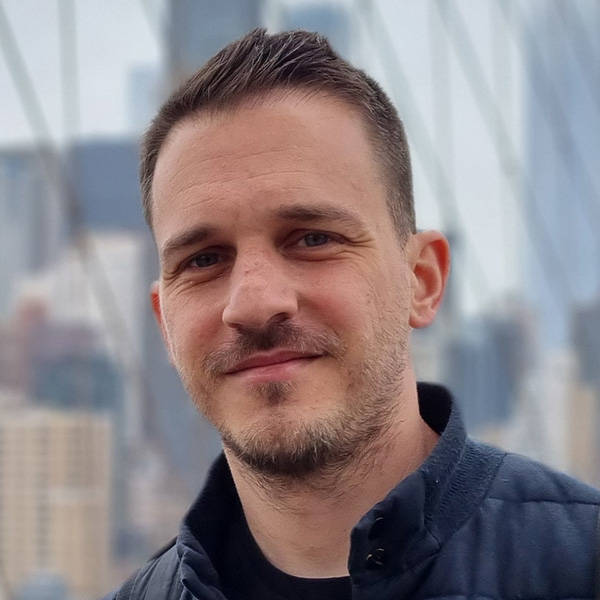 |
|
| Technical Programme Co-Chairs | Konstantinos Karantzalos, NTUA Dr. Karantzalos is a Professor at the National Technical University of Athens, joining the Remote Sensing Laboratory at the School of Rural, Surveying and Geo-Informatics Engineering. He is also occasionally affiliated with the Institute of Communications and Computer Systems (ICCS) and the Athena Research Center. He is a member of the Board of Directors in the Hellenic Space Center. Konstantinos Karantzalos received his engineering diploma from the National Technical University of Athens (2000) and his PhD (NTUA) in collaboration with Ecole Nationale de Ponts et Chaussees (CERTIS/Imagine, ENPC, France). His PhD thesis was entitled ""Automatic feature extraction from aerial and satellite imagery with computer vision techniques"". In 2007, he joined the Department of Applied Mathematics at Ecole Centrale de Paris (France) as a postdoctoral researcher working with Prof. Nikos Paragios (Center for Visual Computing & GALEN group ECP/Inria at the Saclay). His teaching and research interests include earth observation and remote sensing, geospatial big data and analytics, computer vision and machine learning, enviromental monitoring and precision agriculture. He has numerous publications in international journals and conferences and a number of awards and honors for his research contributions. Research/Work experience: 20+ years of research experience, involved with 30+ EU and national excellence/competitive research projects as a principal investigator and as a researcher towards the design, development and validation of state-of-the-art methodologies and cutting-edge technology in Geomatics, Earth Observation and Computer Vision; He was the CTO at Brainomix Ltd. (2009-2012); Curently coaching/mentoring a couple of Greek Start-ups; He worked as a Survey Engineer at the construction of the New Athens International Airport, “El. Venizelos” for the Joint Venture J&P Hellas and Helliniki Texnodomiki at the “Extension of Taxiway C and Olympic Aviation Home Base Apron” (2000-2002). Professional Activities: Dr. Karantzalos serves as a Scientific/Program Committee Member in international conferences and as a reviewer in top rank international journals (e.g., Transactions on Pattern Analysis and Machine Intelligence, IEEE; Transactions on Geoscience and Remote Sensing, Transactions on Image Processing, IEEE; Pattern Recognition Letters, Elsevier; Journal of Photogrammetry and Remote Sensing, Elsevier; Selected Topics in Applied Earth Observations and Remote Sensing, Journal of Selected Topics in Applied Earth Observations and Remote Sensing, IEEE; International Geoscience and Remote Sensing Symposium, IEEE). Dr. Karantzalos serves as Evaluator/ Panel Member for EU and national research programmes and currently Chairing the ISPRS Commision III, WG III/2 on Spectral and Thermal Data Processing and Analytics. | 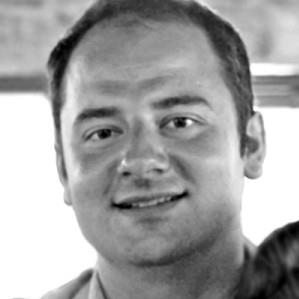 |
| Iphigenia Keramitsoglou, NOA/IAASARS Iphigenia Keramitsoglou is a Research Director in Earth Observation at the National Observatory of Athens IAASARS. She holds a Ph.D. degree from Imperial College London, a M.Sc. in Remote Sensing from University College London and a Physics Degree from National and Kapodistrian University of Athens. She has extensive experience in the organization and management of research and technological development programs and has more than 50 publications in scientific journals.. In particular, she is actively involved in the research regarding monitoring the Urban Heat Island phenomenon from Space and downscaling thermal infrared imagery in real time to safeguard citizens during extreme temperature events and increase urban resilience. She is co-leader of the action on Global Observation of Urban Areas (Global Urban Observation and Information Task, GI-17, ex-SB-04) of the Group on Earth Observation (GEO). She is coordinating the service EXTREMA “Emergency notification system for extreme temperatures” and she is acting as Temporary Advisor of World Health Organisation, European Working Group on Health in Climate Change (2018). For her achievements in downscaling thermal infrared imagery, she has been appointed collaborator of NASA project URBANLST “A high spatio-temporal resolution Land Surface Temperature (LST) product for urban environments”. | 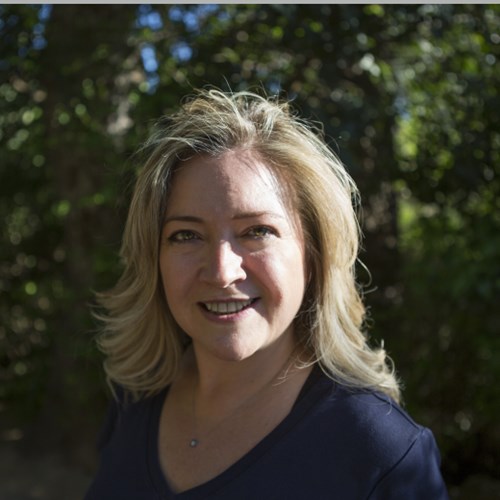 |
|
| George Choumos, National Observatory of Athens George Choumos is a Research Associate and Technical Project Manager at the Operational Unit “BEYOND”, of the Institute for Astronomy & Astrophysics, Space Applications and Remote Sensing, of the National Observatory of Athens. He holds a BSc in Computer Science from the National Kapodistrian University of Athens (NKUA), an MSc in Data Science from Athens University of Economics and Business (AUEB), and he is completing a second MSc in Space Technologies, Applications, and Services from NKUA. He is currently a PhD candidate in the Aerospace Science and Technology department of NKUA, and particularly in the subject of Artificial Intelligence for Space Security. Mr. Choumos is an experienced software engineer, having worked as a member of multicultural teams since 2013. He has been involved in projects related to Software Development, DevOps, Code Management, and Release Management, and he was the team leader of relevant groups. Since 2021, he has shifted his focus to the research domain and as part of the National Observatory of Athens, he has been involved in EU research projects, relevant to Earth Observation and Space Situational Awareness / Space Surveillance and Tracking. |  |
|
| Nikolaos Stathopoulos, NOA/IAASARS Nikolaos Stathopoulos is a senior researcher—geoscientist and scientific/technical project manager at the Operational Unit “BEYOND Centre for Earth Observation Research and Satellite Remote Sensing”, of the Institute for Astronomy & Astrophysics, Space Applications and Remote Sensing, of the National Observatory of Athens (NOA), Greece. He holds a PhD in analysis and modeling of geoenvironmental hazards and water resources via GIS and remote sensing, and two MSc diplomas in science and technology of water resources and in geoinformatics. His Bachelor’s degree was in mining engineering specializing in Earth sciences—geotechnology. His research interests mainly focus on natural disasters (hazard modeling, vulnerability, and risk assessment, management, etc.), land degradation and soil erosion, water resources, and climate change impacts on natural processes. | 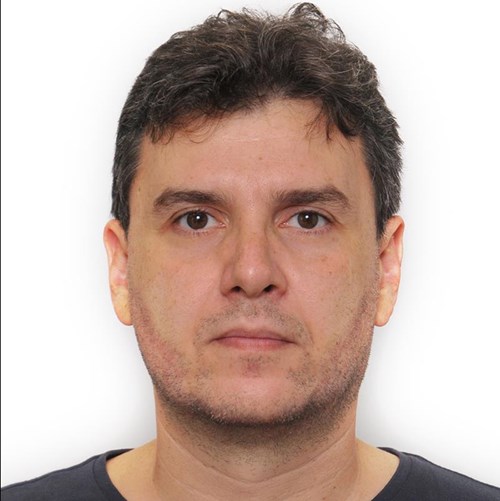 |
|
| Local Arrangement Co-Chairs | Ioannis Papoutsis, National Observatory of Athens Ioannis Papoutsis is an Assistant Professor in the School of Rural, Surveying and Geoinformatics Engineering of the National Technical University of Athens (NTUA), and an affiliated Adjunct Researcher at the Institute of Astronomy, Astrophysics, Space Applications and Remote Sensing of the National Observatory of Athens. He received his diploma in Electrical and Computer Engineering from NTUA, his M.Sc. from the Department of Electronic and Electrical Engineering of University College London (UCL), and his PhD in Remote Sensing from NTUA, in 2002, 2003 and 2014 respectively. His research focuses on Remote Sensing, Artificial Intelligence and big data technologies, with emphasis on applications for disasters management. He has a deep understanding of the Copernicus flagship programme and has participated as PI in several research projects funded from the European Commission, the European Space Agency (ESA) and Copernicus. He is the coordinator of the Horizon Europe project ThinkingEarth on developing Copernicus foundation models, the H2020 project DeepCube that focuses on AI pipelines for big Copernicus data, and of the ESA-funded project SeasFire on seasonal wildfire forecasting with deep learning. |  |
| Vassilia (Lia) Karathanassi, National Technical University of Athens Vassilia Karathanassi received the B.S. degree in Rural, Surveying and Geoinformatics engineering from the National Technical University of Athens (NTUA), Greece, in 1984, the M.S. degree in urban planning-geography from Paris V, France, in 1985 and the Ph.D. degree in remote sensing from NTUA, in 1990. Since 2000, she has been a Professor with the School of Rural and Surveying and Geoinformatics Engineering, NTUA, specialized in hyperspectral / multispectral remote sensing and InSAR/DInSAR processing and applications. She teaches multiple undergraduate and postgraduate courses and she has supervised more than 80 undergraduate and master's theses, 10 Ph.D. theses, and one postdoctoral research. Her published research work includes more than 130 articles and one chapter in the book Hyperspectral Remote Sensing. She is involved in more than 50 EU and national excellence/competitive research projects as a Coordinator, a Principal Investigator, and a Researcher toward the design, development, and validation of state-of-the-art methodologies, and cutting-edge technology in remote sensing and earth observation. | 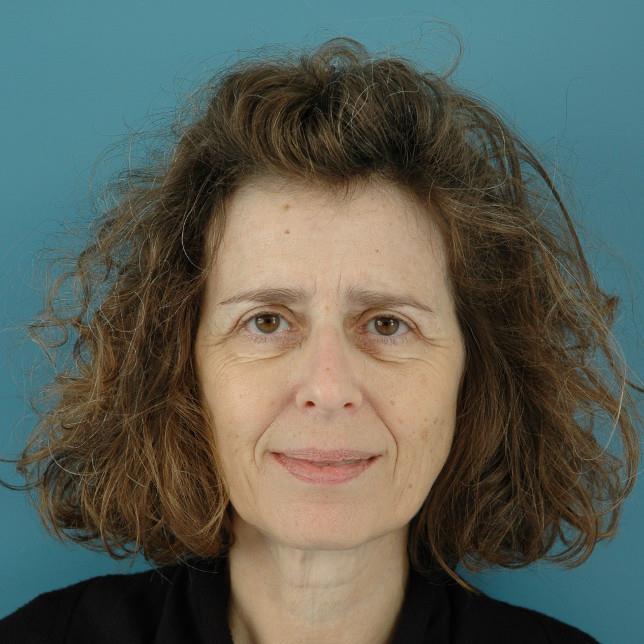 |
|
| Publication & TIE Forum Chair | Giampaolo Ferraioli, University of Naples Parthenope Giampaolo Ferraioli is an Associate Professor of Università degli Studi di Napoli Parthenope. He has been Visiting Scientist at Département TSI of Télécom ParisTech, Paris, France. He is author of more than 150 scientific publications, dealing with Signal and Image Processing, Synthetic Aperture Radar, Artificial Intelligence and Medical Imaging. He serves as Associate Editor of IEEE Geoscience and Remote Sensing Letters, of IEEE Journal on Miniaturization for Air and Space Systems and he is in the Editorial Board of MDPI Remote Sensing. He is member of the Technical Liaison Committee for IEEE Transactions on Computational Imaging. | 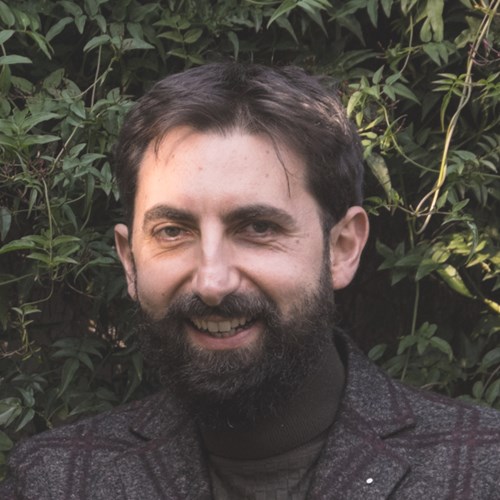 |
| Finance Chair | Nektarios Chrysoulakis, FORTH Dr. Nektarios Chrysoulakis is a Director of Research at FORTH and Head of the Remote Sensing Lab (http://rslab.gr). He holds a BSc in Physics, a MSc in Environmental Physics and PhD in Remote Sensing from the University of Athens. He has been involved in R&D projects funded by the European Union, the European Space Agency and the Ministries of Environment, Development, Culture and Education. His main research interests include climate change and urbanization, urban climate, urban energy balance, urban resilience, urban planning and metabolism, natural and technological hazards, surface temperature and albedo, environmental monitoring and change detection. Dr. Chrysoulakis is cPI of the European Research Council (ERC) Synergy project urbisphere (http://urbisphere.eu), focusing on coupling dynamic cities and climate. He is the coordinator of the H2020-Space project CURE (http://cure-copernicus.eu), focusing on Copernicus services exploitation in the domain of urban resilience. He has coordinated the projects URBANFLUXES (H2020), SEN4RUS (ERA.Net-RUS Plus), BRIDGE (FP7) GEOURBAN (FP7). He has also participated projects CoCO2(H2020), HARMONIA (H2020), ECOPOTENTIAL (H2020), THINKNATURE (H2020), IGIC (LIFE) and FLIRE (LIFE). Dr. Chrysoulakis is a member of the Board of Directors of the Eratosthenes Centre of Excellence (https://eratosthenes.org.cy), in Earth Observation, space technology and geospatial analysis. Dr. Chrysoulakis is a Visiting Professor at the Department of Physics of the University of Crete, teaching the course “Principles and Applications of Satellite Remote Sensing”; and at the CIHEAM-MAICh, teaching the course “Remote sensing of Urban Environments”. Since 2016 he has been co-Chair of the SPIE Conference on Remote Sensing Technologies and Applications in Urban Environments. He is involved in GEO Climate Change Working Group, as well as in GEO Programme Board Urban Resilience Subgroup. He has more than 300 publications in per-review journals and conference proceedings. | 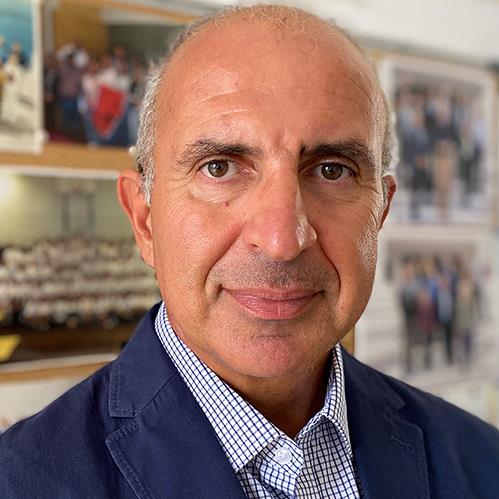 |
| Publicity Chair | Panagiotis Tsakalides, University of Crete Panagiotis Tsakalides received the diploma degree in electrical engineering from the Aristotle University of Thessaloniki, Greece, in 1990, and the PhD degree in electrical engineering from the University of Southern California, Los Angeles in 1995. He is a professor in computer science at the University of Crete, Heraklion, Greece, and the Head of the Signal Processing Laboratory at FORTH-ICS. His research interests include statistical signal processing, machine learning, sparse representations, and applications in remote sensing, astrophysics, audio, imaging, and multimedia systems. He has coauthored over 250 technical publications in these areas. Since 2003, he has been the project coordinator in 9 European Commission and 13 national projects with a budget in excess of 15 Meuros totaling more than 8 Meuros in actual funding for FORTH-ICS and the University of Crete. | 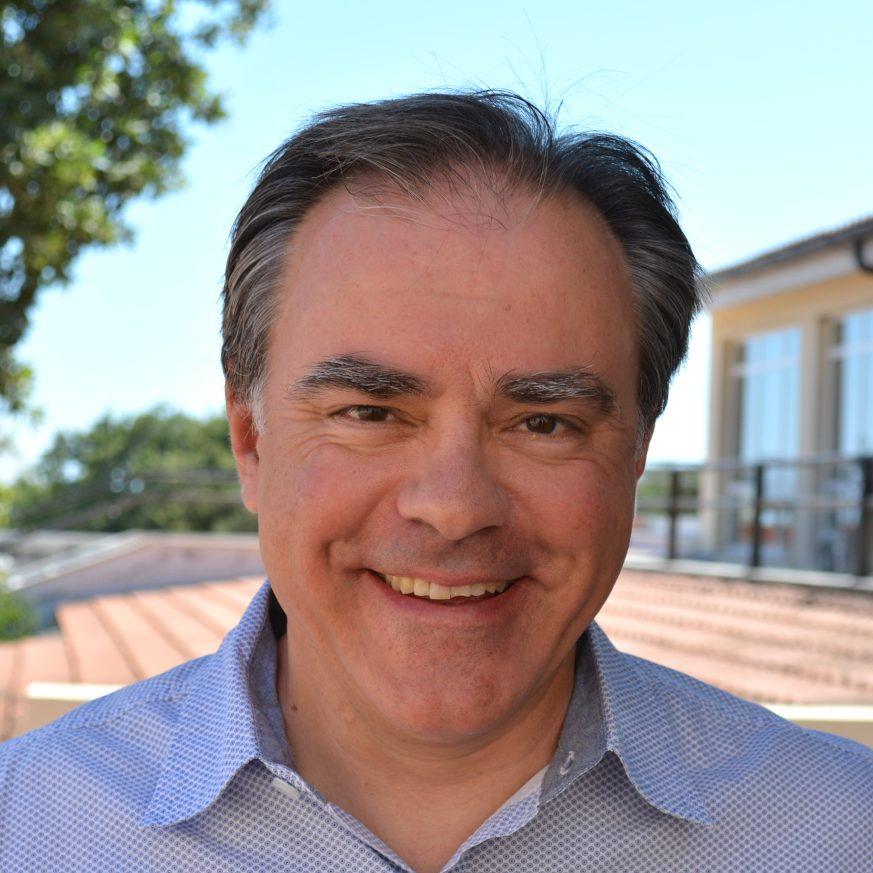 |
| Sponsorship Co-Chairs | Vassilis Amiridis, National Observatory of Athens Vassilis Amiridis is a Research Director at the National Observatory of Athens (NOA) in Greece (IAASARS/NOA). The scientific expertise of VA pertains to Earth System Sciences (Physical Sciences), with a focus on Atmospheric Physics and the impact of short-term climate forcers (such as aerosols) on radiation, clouds, dynamics, and consequently on the interactive processes governing Earth’s weather and climate. His research is mainly based on observations from remote sensing and synergies with theoretical models. The outcome of his research has contributed to the understanding of the desert dust cycle and the aerosol impact on Earth’s energy budget, weather, and climate. | 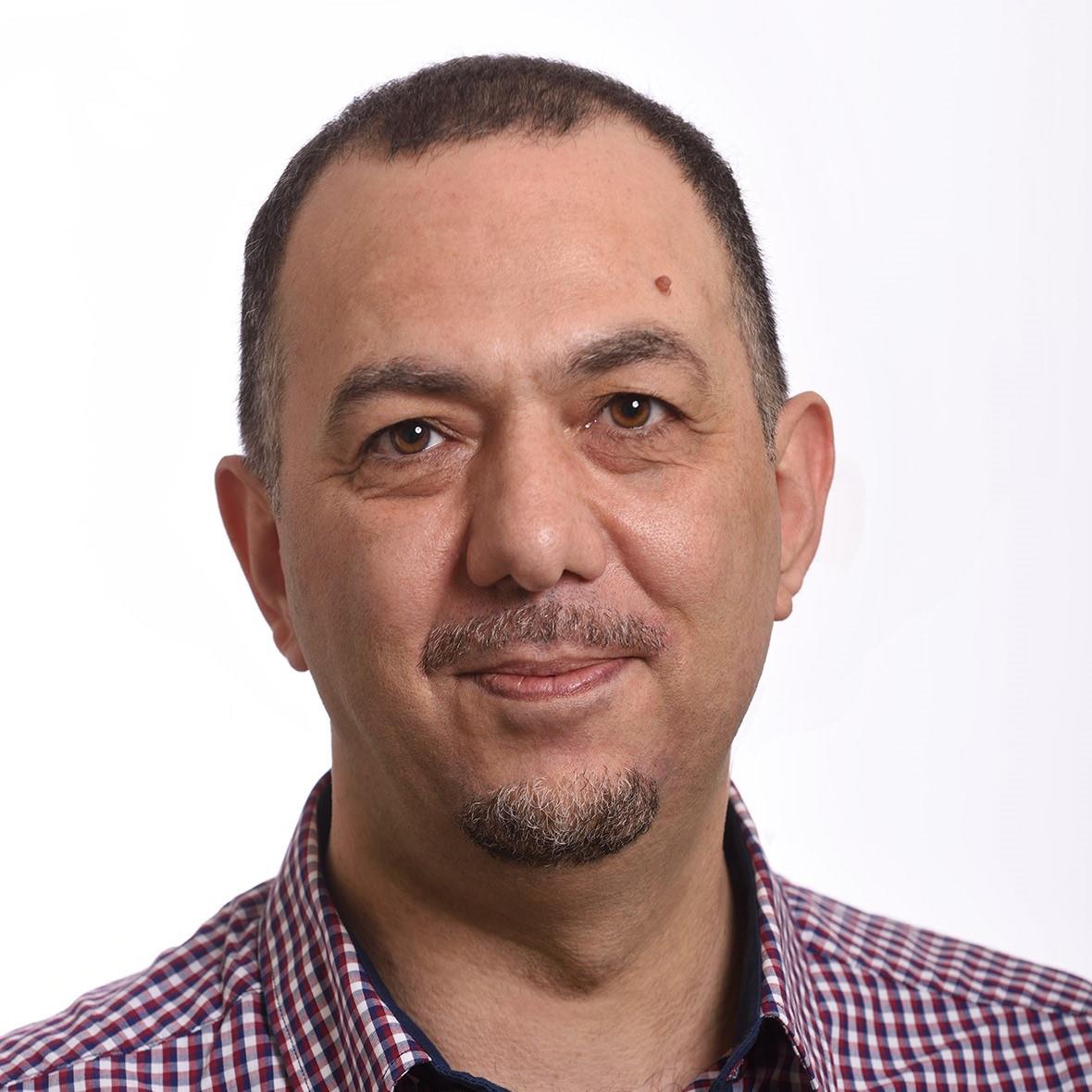 |
| Diofantos Hadjimitsis, Cyprus University Prof. Diofantos G. Hadjimitsis is a Full Professor at the Department of Civil Engineering and Geomatics, Faculty of Engineering and Technology of the Cyprus University of Technology (CUT) and the Managing Director of the ‘Eratosthenes Centre of Excellence-Cyprus University of Technology’. He was the former ‘Vice-Rector of Academic Affairs’ of the Cyprus University of Technology (2016-2019) with main duties of chairing and managing the 'Research’, 'Quality Assurance', ‘Studies' committees for the whole university. He is the Vice President of the ‘The Cyprus Agency of Quality Assurance and Accreditation in Higher Education’ board and he is a member of the board since 2015. He is included in the world’s top 2% of most important scientists in the list issued by Stanford University (2022, 2023). He is also the Head and founder of the Remote Sensing & Geo-Environment Lab. He was the Head of the Department of Civil Engineering and Geomatics at CUT (2011-2015). He obtained his PhD and MPhil in the field of Satellite Remote Sensing from the University of Surrey (UK). His PHD has been sponsored from Thames Water Utilities (UK). During his doctoral studies he received an ORS Scholarship and a Faculty of Engineering Scholarship. He obtained a First Class BEng. (Honours) Degree from Surrey University and was awarded the Felix Pulzer Memorial Prize (Surrey University) and National Guard Prize (HTI). He obtained a First class HND Diploma from the Higher Technical Institute and a distinction MSc award in Real Estate and Property Management (RICS), from the University of Salford (UK). He has worked in the past at the University of Surrey (UK) (researcher, teaching assistant, 1996-1999), University of Southampton (UK) (post-doctoral research fellow, 2000-2003), and Frederick University (2003-2007). Diofantos is the coordinator of the ‘Excelsior’ Horizon Teaming2020 project ‘ERATOSTHENES: EXcellence Research Centre for Earth SurveiLlance and Space-Based MonItoring Of the EnviRonment’ (www.excelsior2020.eu & www.eratosthenes.org.cy) (38 million euros funding). He has more than 400 publications in journals, conference proceedings, and chapters in books and monographs in the field of remote sensing and GIS. His research has focused on remote sensing and GIS applications in environmental monitoring. He participated as a coordinator or partner in more than 130 funded projects from Horizon Europe, H2020, FP7, LIFE+, ERASMUS, Structural Funds, ESA, Eureka, Cyprus Research Promotion Foundation etc. He is the top-ranked academic within the Cyprus University of Technology (CUT). in securing grants since 2007 when he joined the CUT. He was a National Delegate for Space (FP7) and the member of the National Experts appointed by the Government for evaluating Cyprus to join the European Space Agency (ESA) as a full member (since 2009). He is the Chairman of the SPIE RSCy International conferences of Remote Sensing and Geo-information (SPIE) co-organised with European Space Agency (ESA), NASA, DLR, GEO etc in Cyprus. He is the editor of the book ‘Remote Sensing of Environment-Integrated Approaches’ (intech) (2013). He was nominated and selected by SPIE chairs as SPIE senior member from the whole world for the year 2014. Diofantos is a civil engineer and accredited valuator by profession and member of the Cyprus Scientific and Technical Chamber (ΕΤΕΚ) in both professional areas. He is a member of the editorial boards of several journals such as ‘MDPI Remote Sensing’, ‘MDPI Heritage’ Journals, ‘Open Geosciences’ Journal , an Associate Editor in Data Fusion and Assimilation (specialty section of Frontiers in Remote Sensing). Diofantos is the first co-leader of the NASA LCLUC Mediterranean Regional Information Network (MedRIN). He has been elected as a Deputy Chair at the GEO Climate Change WG Subgroup 1 and has had significant contribution in the GEO Climate Change Working Group Roadmap. He has been nominated by the Meteorological Service in Cyprus to participate in GEO. He participates in several accreditation panels in the Hellenic Authority for Higher Education. | 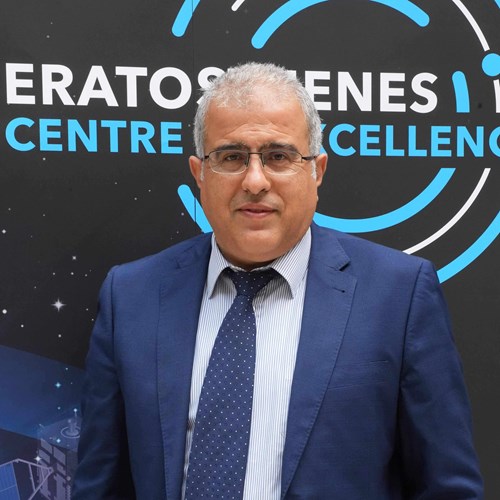 |
|
| Industry Liaison | Markos Trichas, BAE Systems |  |
| Tutorial Chair | Maria Vakalopoulou, Centrale Supélec, University Paris-Saclay Maria Vakalopoulou is an Assistant Professor and the team lead of the βiomathematics group at MICS laboratory of CentraleSupelec University Paris-Saclay, Paris, France. Prior to that, she was a postdoctoral researcher at the same university (2017-2019) while she received her Ph.D from the school of Rural, Surverying and Geoinformatics Engineering at NTUA (2017), where she also received her engineering diploma. Her research focuses on artificial intelligence with a focus on the development of methods and algorithms for visual perception, including remote sensing and medical imaging. Her research contributions have received a number of awards and honors. | 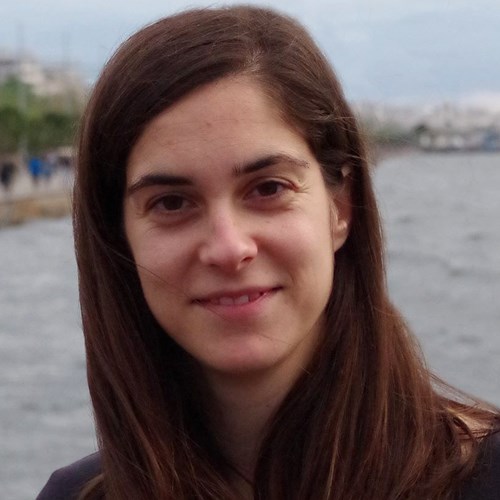 |
| Diversity and Inclusion Chair | Alexia Tsouni, National Observatory of Athens (NOA) Alexia Tsouni is a graduate of the School of Civil Engineering of the National Technical University of Athens (NTUA), with specialisation in Water Resources, Hydraulic and Maritime Engineering, and she also holds a postgraduate diploma in Water Resources Science and Technology from NTUA. She is a PhD candidate at the School of Civil Engineering of NTUA on floods simulation and risk assessment in urban areas combining multiple data sources. She currently works as research associate in the Institute of Astronomy, Astrophysics, Space Applications and Remote Sensing (IAASARS) of the National Observatory of Athens (NOA). She leads the FloodHub team of the Operational Unit “BEYOND Centre of Earth Observation Research and Satellite Remote Sensing”. | 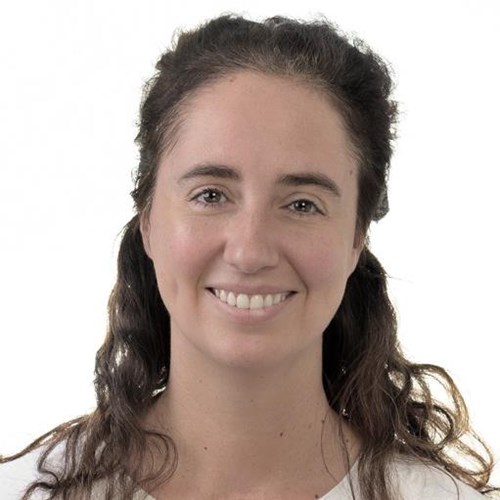 |
| Education Camp, Student Activity Co-Chairs | Elpidoforos Anastasiou, Cyprus University Education: He is currently a PhD Candidate in “Remote Sensing, Geoinformatics and Earth Observation” at the Department of Civil Engineering and Geomatics of Cyprus University of Technology. He received his Bachelor of Engineering in 2006 from Northumbria University and his Master’s Degree in Education (MA) in 2009 from Middlesex university of London. Professional background: When he began his undergraduate career, he was exposed to the full range of engineering courses, all of which tended to reinforce and solidify his intense interest in engineering. In the realm of engineering and education, he developed a special interest in STEAM education and space applications. In 2017 he founded an NGO ''Cyprus Space Foundation '' in a persuade to educate students in space activities using STEAM. He is an active member of the parliament on research, innovation and digital governance (committee on education and culture).He is the director and founder of Pascal Space Center, one of the most advanced educational satellite ground stations in Europe and the project Leader of “Pascal Mission to Space”. Over the last 3 years, he created several Space Science Education and Outreach Activities, Including the first Space UP-Cyprus and a national space competition, giving the opportunity to over 2.000 students to participate in deferent space exploration activities. Research: Elpidoforos research interests include : Satellite Remote Sensing, GIS, Space Science and STEAM education ,CubeSats, Satellite Ground Stations. | 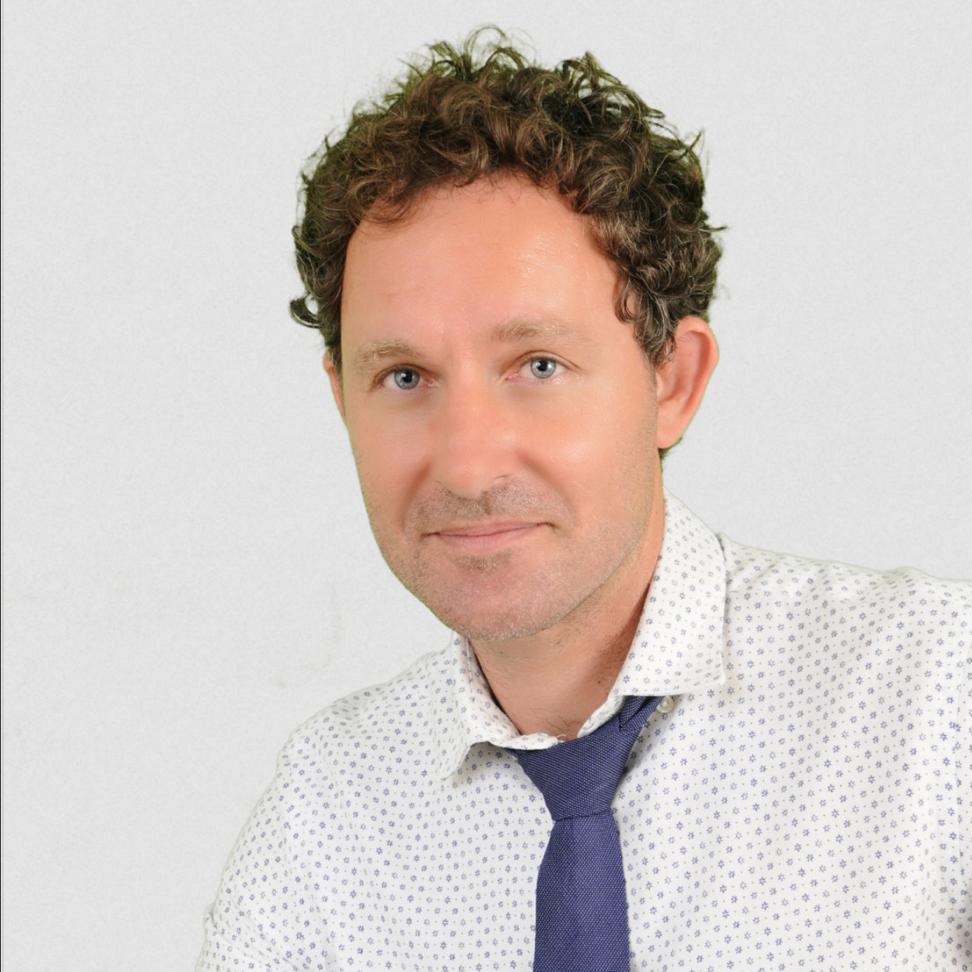 |
| Gerasopoulos Evangelos, National Observatory of Athens Dr. Evangelos Gerasopoulos is the Director of the Institute for Environmental Research and Sustainable Development (IERSD) of the National Observatory of Athens (NOA). He studied Physics at the Aristotle University of Thessaloniki (1996) and received his PhD in the field of Atmospheric Physics and Dynamics (2003). He worked as post-doctoral fellow at the Max Planck Institute (Biogeochemistry Department, Mainz, Germany) and the Environmental Chemical Processes Lab (Chemistry Department, University of Crete), before his recruitment at NOA in 2006. During his career, he has been active in the fields of atmospheric composition and air quality research, Earth system processes, climate and climate change, environment and health, Earth observation, urban sustainability. He is also the Director of the Greek GEO Office (since 2014), representing Greece in the relevant international bodies in the field of Earth observation and serving as co-chair of GEO’s Programme Board. In the past, he has served as Member of the Special Scientific Committee on Climate Change of the Ministry of Environment and Energy (2020-2023), Member of the Sectorial Scientific Council for the Environment and Energy of the National Council for Research and Technology (2014 - 2016), among other positions. Since 2020 he is co-leading, together with UNESCO’s World Heritage Center, the international GEO Pilot Initiative “Urban Heritage Observatory (UHCO)” and he has been leading GEO’s global endeavor to establish "Resilient Cities and Human Settlements" as its fourth Engagement Priority. In his research career, he has published 127 scientific publications in peer reviewed journals and more than 160 in conferences (4800 citations, h-index-43). | 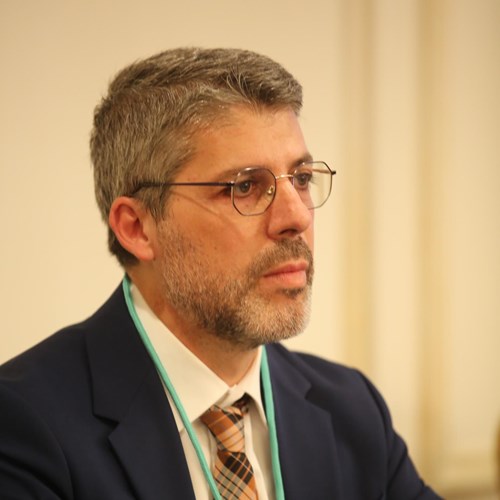 |
|
| Eleni Athanasopoulou, National Observatory of Athens Dr. Eleni Athanasopoulou is a research fellow at the Institute for Environmental Research and Sustainable Development (IERSD) of the National Observatory of Athens (NOA). She studied Geology at the National and Kapodistrian University of Athens (2000) and received her Master’s (2003) and PhD (National Scholarship, 2009) in the field of Atmospheric Physics and Chemistry (NKUA). She worked as post-doctoral fellow at the Karlsruhe Institute for Technology (Germany) and was granted with a post-doctoral scholarship at the Physics Depts. of the NKUA and University of Manchester (2012-2015, U.K.). She has been active in the fields of numerical atmospheric modeling at the regional and local scales, inorganic and organic chemistry of particulate matter, air quality research, direct radiative feedback of aerosol, air pollution and connections with climate and health, Earth observation, urban sustainability. She is also a member of the Urban Resilience and Sustainable Urbanization Group of the Greek Geo Office and a member of the National Working Group on Work-Life Balance and Inclusive Environment in Research. In the past, she has been a contractual lecturer of Atmospheric pollution at the University of Patras (2017-2018). Since 2004 she has participated in more than 20 European or National Funded research projects, has published more than 20 articles in peer-reviewed journals and more than 40 in International Scientific Conferences (530 citations, h-index 12, Scopus, June 2024). | 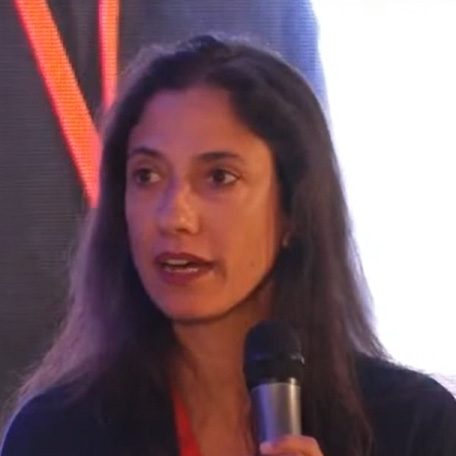 |
|
| Governmental Liaison Regional Co-Chairs | Barbara Ryan, World Geospatial Industry Council (WGIC) Under Barbara Ryan’s leadership, millions of satellite images and other Earth observation data have been made available to the general public at no charge, allowing scientists, planners and policy makers to make better-informed decisions on problems that transcend political boundaries. She has worked for the USGS, WMO, and GEO, and is now the Executive Director of the World Geospatial Industry Council (WGIC) where she is advocating for stronger public/private collaboration to bring Earth observations and geospatial data to the pressing issue of the Earth's changing climate. | 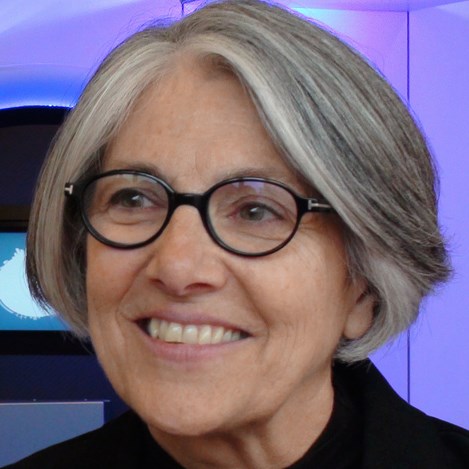 |
| Hesham El-Askary, Chapman University Prof. El-Askary received his Ph.D. in Computational Sciences and Informatics from George Mason University in 2004 along with his two MS degrees in Computational sciences and Earth Systems Sciences. In 2015 he earned Chapman University's elite Senior Wang-Fradkin Professorship award. In 2018, he was named a ‘Game Changer: Orange County Leaders Transforming the World’ by the Orange County Business Council. Prof. El-Askary served as Vice President of the Egyptian Space Agency and also as the regional coordinator on a $3 ME project under the Horizon 2020 framework. He is also the PI on a 3.2 MD on climate change grants with US Department of education. He also served as the vice leader to the dissemination work package in the EU InDUST cost initiative. In 2019, Prof. El-Askary contributed among only 200 scientists worldwide to the IPCC report on the Desertification Chapter. He was also invited by the UN secretariat to the COP14 meeting in New Delhi, COP27 in Egypt and many more. | 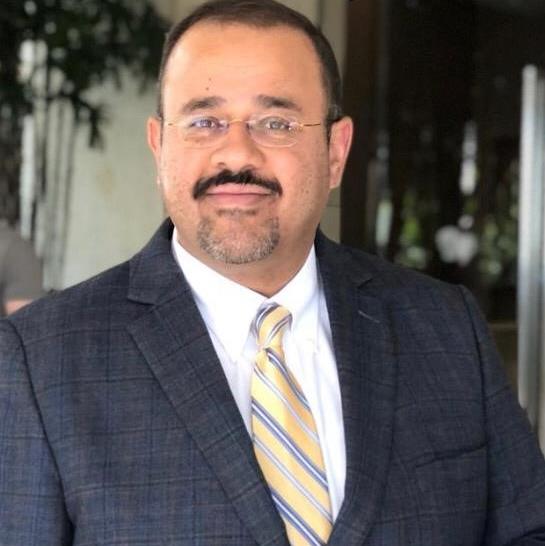 |
|
| Committee Members At-Large | Stamatios Krimigis, Academy of Athens Professional background: Research Associate, 1965-1966; Assistant Professor of Physics, 1966-1968; Department of Physics and Astronomy, University of Iowa. Johns Hopkins University Applied Physics Laboratory (1968-present). Supervisor (Space Physics Section) and Principal Staff member (since 1972), 1968-1974. Group Supervisor (Space Physics and Instrumentation Group), 1974-1981. Chief Scientist (Space Department), 1980-1990. Head (Space Department), 1991-2004. Emeritus Head, 2004-present. Supervisor, Office of Space Research and Technology, Academy of Athens, Athens, Greece (2006-present). Greece’s Alternate Head Delegate to the ESA Council (12/06-09/10). Chair of the National Council of Research and Technology of Greece (9/10-12/13). Relevant experience: As Principal Investigator (PI) or Co-Investigator (Co-I), designed, built, flown and analyzed data from 21 instruments on NASA/ESA space missions, 1963 to present, as follows: PI--Cassini-Huygens MIMI instrument,1990-2015; Voyager 1 and 2 LECP instrument 1971-present. Explorer 47 and Explorer 50 (IMP-7 and 8) CPME, 1968-1996. AMPTE, 1973-1989. Lead Co-I or Co-I- Galileo EPD, 1977-2003; Ulysses HI-SCALE 1978-2009; Geotail EPIC, 1985-present; ACE, ULEIS and EPAM, 1988-present; MESSENGER EPS, 1998-present; Mariner 3, 4, 5 TRD (Mars and Venus) 1963-68; Explorer 33 and Explorer 35 EPD, 1965-1970. Injun 4 SSD, 1963-1966; Injun 5 SSD, 1966-1971; OGO-4 SSD, 1966-1970; Collaborating Scientist, New Horizons, 2002-present. Also, numerous NSF grants, 1970-1990. Has designed and built instruments that have flown to all nine classical planets (only scientist to do so). Member, Space Science Board, National Academy of Sciences, and Chair, Committee on Solar and Space Physics 1983-1986; Member, NASA Space Science and Applications Advisory Committee (SSAAC), 1987-1990; NASA Inter-Agency Consultative Group for Space Science (IACG), 1987-1993; NASA Discovery Program Science Working Group, 1989-1992. Member or Chair of over 40 committees, Commissions, Working Groups at US and International level. | 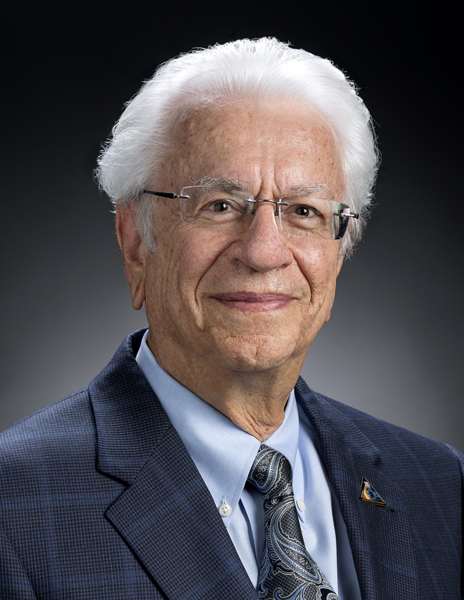 |
| Christos Zerefos, Academy of Athens ACADEMIC POSITIONS SELECTED MEMBERSHIP TO SCIENTIFIC SOCIETIES AND COMMITTEES RESEARCH POSITIONS |  |
|
| Upendra Singh, NASA Technical Fellow for Sensors and Instrumentation Dr. Upendra N. Singh, NASA Technical Fellow for Sensors and Instrumentation at the NASA Engineering and Safety Center, NASA Langley Research Center is an internationally recognized atmospheric scientist and laser remote sensing expert with 30 years’ experience. Dr. Singh served as the Principal Investigator of the $70 M multi-Center NASA Laser Risk Reduction Program (LRRP), which he envisioned, formulated and implemented during 2002-2010. His LRRP program has led the way to a significant reduction in risk for lasers in space for global remote sensing using lidars. He conceived and developed new ideas for active remote sensing technologies and techniques for NASA space-based remote sensing, and pioneered the development of world-record energy 2-micron solid-state laser for 3-D global wind measurement from space. The pioneering development led to the award of NASA Earth Orbitor-2 shuttle mission SPARCLE (Space Readiness Coherent Doppler Lidar Experiment) – the first space-based coherent lidar mission for global wind measurement. He is currently serving as Principal Investigator of Earth Science Technology Office funded Instrument Incubator Program to enable space-based measurements of Carbon Dioxide. In the last two decades, Dr. Singh has organized 35 international symposia/conferences and has authored/co-authored over 350 scientific articles in atmospheric sciences and remote sensing area. Dr. Singh began his career at LaRC in 1996 and served as an Aerospace Technologist in the Remote Sensing Technology Branch (1996-’99) and as the Branch Head of Electro-Optics and Controls Branch (1999-2001) in the Engineering Directorate (ED). Dr. Singh served as the Chief Technologist (2001-2013) and Associate Director for Sensor Systems (2013-2016) in ED providing technical leadership to more than 350 highly qualified professionals in the area of science, aeronautics and exploration. He served as a Chief Scientist from Hughes STX Corporation at NASA Goddard Space Flight Center (1990-’96) and an Assistant Research Scientist at University of Maryland, College Park, Maryland (1985-’90). He is a Senior Executive Fellow (2002) of the JFK School of Government, Harvard University. In 2002, he was selected into the NASA Senior Executive Service Candidate Development Program (SESCDP) and received his SES certification from US Office of Personal Management (OPM) in 2005. He served on the Board of Editors for the Journal of Optics and Lasers in Engineering, Elsevier Science Ltd, England (2000-2008) and is the Associate Editor for SPIE Journal of Applied Remote Sensing (2007-current). He is the President of International Coordination Group of Laser Atmospheric Studies (ICLAS) of International Radiation Commission (IRC). He served on the Board of Directors for the Society of Photo-Optical Instrumentation Engineers (SPIE) during 2009-11 and SPIE Symposium Committee (2006-2015). He is an elected fellow of the SPIE, and the Optical Society of America (OSA), and a Senior Member of IEEE. Dr. Singh has received numerous awards and honors including the NASA Outstanding Leadership Medal (2001), the NASA Langley’s H.J.E. Reid Award (2005) for co-authoring an outstanding paper, and NASA’s Exceptional Service Medal (2006). Dr. Singh earned his Ph.D. degree in Physics from University of Pierre and Marie Curie, Paris, France in 1985, Diplome d’Etude Approfondis (D.E.A) in Optics and Signal Processing from University of Franche Compte, Besançon France in 1982, M. Phil. (Physics) in Quantum Electronics from Indian Institute of Technology, Kanpur in 1980, and M. Sc. (Applied Physics) in Quantum Electronics from Birla Institute of Technology, Mesra, Ranchi in 1979. | 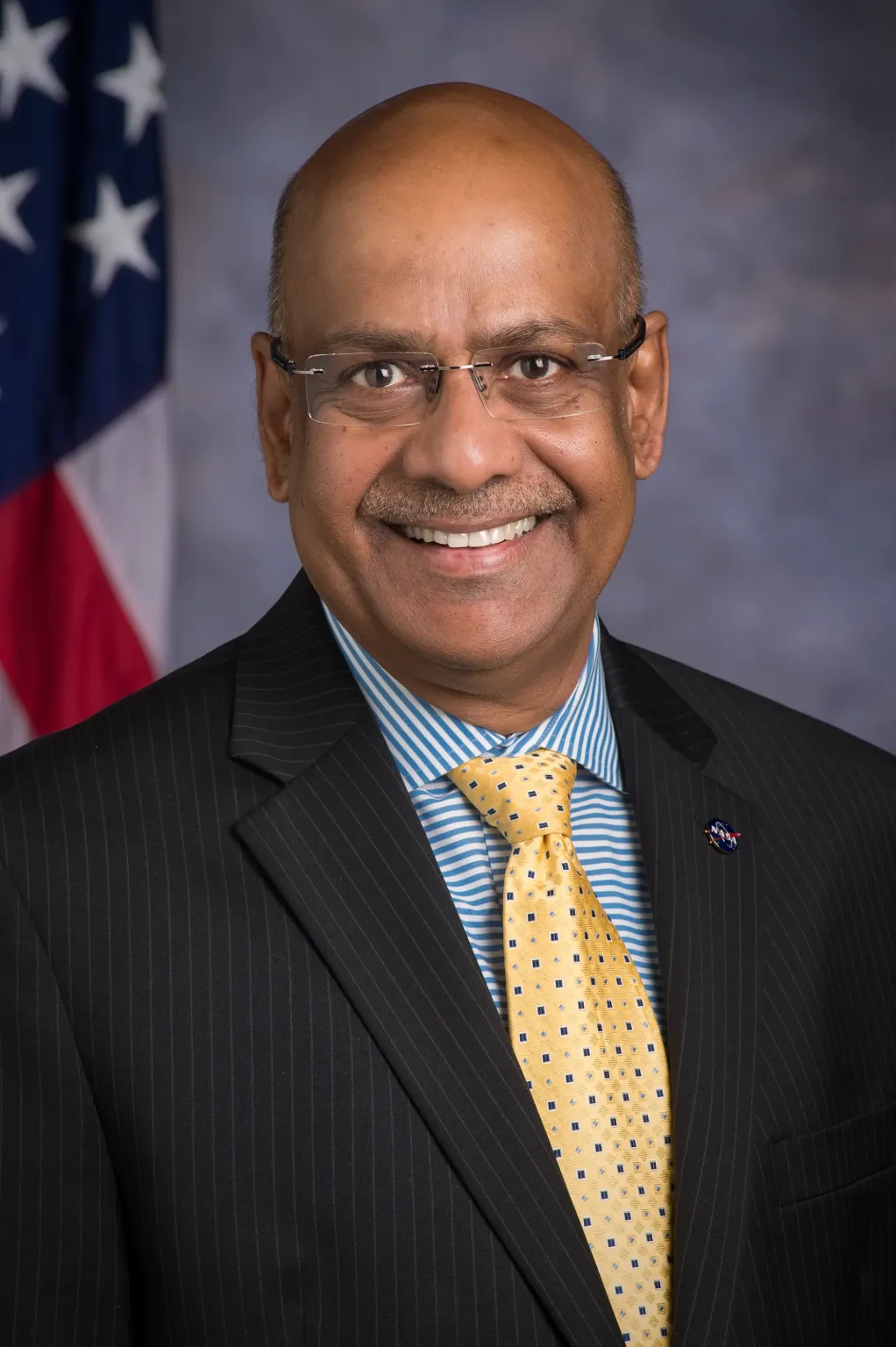 |